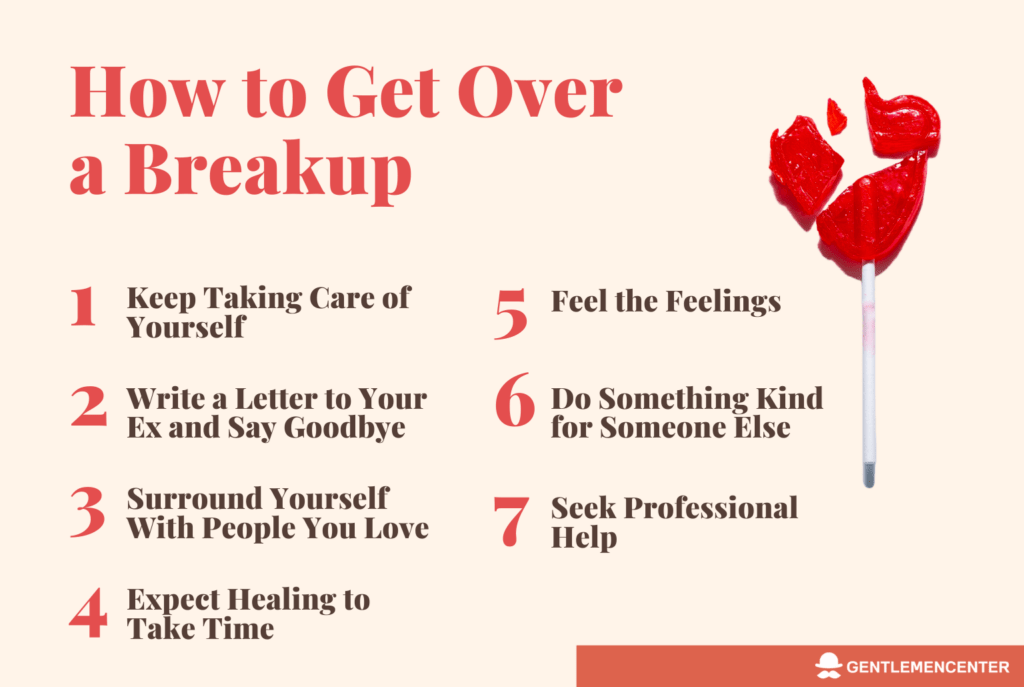Navigating the complex web of human emotions during a relationship’s end is rarely easy, and often fraught with unexpected challenges. One such challenge that isn’t often talked about but is quite common is “Dumpers Remorse.”
This is a feeling experienced by the person who initiated the breakup, often characterized by regret or second thoughts. In this article, we will be taking a closer look at Dumpers Remorse, its implications, and ways of handling it.

- Dumpers Remorse: Unraveling The Concept
- Psychology Of Dumpers Remorse
- The 10 Stages Of The Dumpers Regret Timeline
- How Long Does It Take For Dumpers Remorse To Kick In?
- Can You Trigger Dumpers Remorse?
- What Are The Signs Of Dumpers Remorse?
- How To Move Forward
- How Common Is Dumpers Remorse?
- How Do You Know If A Dumper Regrets It?
- Do Dumpers Usually Come Back?
- How Do You Know If Your Dumper Is Hurting?
- Why Might A Person Who Initiated A Breakup Feel Regret Or Remorse?
- Can Dumpers Remorse Occur Immediately After A Breakup, Or Does It Usually Take Some Time To Develop?
- Is It Possible To Manipulate Or Create Conditions That Can Lead To Dumpers Remorse?
- Are There Common Signs To Indicate A Person Experiencing Dumpers Remorse?
- How Can One Move Forward After Experiencing Dumpers Remorse?
- Is Dumpers Remorse A Common Experience?
- Do Individuals Who Experience Dumpers Remorse Usually Return To Their Ex-Partners?
- Can Dumpers Remorse Happen In Both Short-Term And Long-Term Relationships?
- What’s The Role Of Social Media In Exacerbating Dumpers Remorse?
- Can Maintaining A Friendship With An Ex-Partner Alleviate Or Intensify Dumpers Remorse?
- How Can One Differentiate Between Genuine Dumpers Remorse And Temporary Loneliness Or Fear Of Being Single?
- Is Dumpers Remorse More Common In Certain Types Of Relationships Or Breakups?
- How Can One Use The Experience Of Dumpers Remorse For Personal Growth?
- Is Professional Help Always Necessary When Dealing With Dumpers Remorse?
- Conclusion
Dumpers Remorse: Unraveling The Concept
Dumpers Remorse refers to a phenomenon experienced by the person who made the decision to end a romantic relationship. Essentially, it is the regret or guilt that arises after the person realizes the gravity of their decision.
The “dumper,” who was initially thought to have an easier time dealing with the breakup, may find themselves grappling with unexpected feelings of guilt, sadness, and sometimes, a desire to rekindle the relationship.
This sentiment often emerges when the dumper starts to miss their ex-partner or when the reality of their decision starts to settle in. It may be triggered by loneliness, fear of being alone, or the sudden realization of the good qualities that their ex-participant had.
As the dumper further contemplates their decision, they might begin to question whether they made the right choice or acted too hastily.
In the midst of all this, the dumper might also feel conflicted about their decision and worry about the harm they’ve inflicted on their ex-partner. They may even find themselves longing to reverse the breakup, which can lead to further confusion and emotional turmoil.
While it’s often assumed that the person who initiates the breakup is spared from the intense emotions that follow, Dumpers Remorse illustrates that this isn’t always the case. It is a clear reminder that ending a relationship can be emotionally challenging for both parties involved.

Psychology Of Dumpers Remorse
The psychology behind Dumpers Remorse is multifaceted. It involves elements of cognitive dissonance, guilt, loneliness, and fear of the unknown, among other factors.
Cognitive dissonance comes into play when the dumper’s actions (i.e., breaking up with their partner) don’t align with their feelings (e.g., still caring for or missing their partner). This creates a mental conflict that can lead to regret.
Guilt, on the other hand, can stem from the pain that the dumper has caused the other person. The dumper may feel responsible for their ex-partner’s suffering, which can intensify feelings of remorse.
Loneliness is another significant factor. After the initial relief of ending an unhappy or unsatisfactory relationship, the dumper may start to feel lonely. As humans, we are inherently social creatures, and the absence of a once-intimate partner can make one feel isolated and alone.
Lastly, fear of the unknown can trigger Dumpers Remorse. The dumper may question whether they’ll find another partner, whether they’ll be happier without their ex, or whether they’ve made a grave mistake. This fear can fuel regret and second thoughts.
The 10 Stages Of The Dumpers Regret Timeline
1. Relief
Immediately following the breakup, the dumper might feel a sense of relief, having finally taken a step that they might have been contemplating for a long time.
2. Euphoria
A sense of newfound freedom and independence may lead to short-term euphoria.
3. Doubt
Once the initial euphoria wears off, doubts may start to creep in. The dumper may question their decision and whether it was too hasty.
4. Loneliness
The absence of a once-constant companion can lead to feelings of loneliness and isolation.

5. Nostalgia
The dumper might begin to reminisce about the good times with their ex, which can intensify feelings of loss.
6. Guilt
As reality sets in, the dumper may feel guilt over hurting their ex-partner.
7. Panic
The dumper might panic at the thought of having lost their ex-partner forever, potentially leading them to consider reconciliation.
8. Denial
They may try to deny these feelings, trying to convince themselves that they made the right decision.
9. Acceptance
With time, the dumper begins to accept their decision, acknowledging both the good and bad aspects of their past relationship.
10. Moving On
Ultimately, the dumper finds peace with their decision and starts to move forward, learning from their past experiences.

These stages aren’t necessarily linear, and individuals might experience them in different orders or even skip some stages altogether. The most important thing is recognizing these emotions and dealing with them in a healthy manner.
How Long Does It Take For Dumpers Remorse To Kick In?
The onset of Dumpers Remorse is highly individual and depends on various factors, including the length and intensity of the relationship, the reasons for the breakup, and the individual’s personal coping mechanisms. For some, it may set in almost immediately after the breakup, while others may not experience it until weeks or even months later.
For instance, if the relationship was tumultuous and the decision to break up was a long time coming, the dumper might initially feel a sense of relief. However, as time passes and memories of the good times surface, remorse might kick in.
Can You Trigger Dumpers Remorse?
While it’s possible to create conditions that might lead a dumper to question their decision, it’s essential to remember that manipulating someone’s emotions is generally unethical and could potentially lead to further harm for both parties.
A healthy approach would be to focus on personal growth and development post-breakup. If an ex-partner notices positive changes, it may cause them to reconsider their decision, but this shouldn’t be the primary motivation for self-improvement.
What Are The Signs Of Dumpers Remorse?
Recognizing Dumpers Remorse can be challenging, particularly if communication between the ex-partners has been limited post-breakup. However, certain signs might indicate that the dumper is experiencing remorse:
1. Repeated attempts at contact
The dumper might reach out frequently under the guise of checking in or seeking closure, indicating that they might be missing their ex-partner.
2. Nostalgia
They may reminisce about the good times or express regret about how things ended, suggesting they’ve been reflecting on the relationship.
3. Emotional ups and downs
If the dumper appears emotionally volatile, swinging between appearing fine and being upset, it could indicate internal conflict about the breakup.
4. Apologies and guilt
Expressing guilt over the breakup or frequently apologizing could suggest feelings of remorse.
5. Indecision
They may give mixed signals, indicating a struggle with their decision to end the relationship.

Again, these signs are not definitive proof of Dumpers Remorse, as they could also be associated with the natural process of moving on. However, they may give some insight into the dumper’s emotional state post-breakup.
How To Move Forward
Moving forward from Dumpers Remorse involves accepting the past, learning from the experience, and focusing on personal growth. Here’s a more detailed approach:
1. Acknowledge your feelings
The first step is to accept your feelings of regret and guilt. It’s okay to feel remorseful; it’s a normal human emotion and indicates empathy and self-awareness.
2. Reflect on your decision
Take some time to reflect on why you ended the relationship in the first place. Was it impulsive or well-thought-out? What were the reasons behind your decision? This reflection can provide valuable insights.
3. Seek professional help
A therapist or counselor can provide a safe space to explore your feelings and offer strategies to manage your emotions.
4. Focus on self-improvement
Use this time to work on personal growth. Explore new hobbies, focus on career advancement, or invest in self-care. The goal is to emerge as a stronger and more self-aware individual.
5. Reestablish communication (if appropriate)
If you truly believe the breakup was a mistake, consider discussing your feelings with your ex-partner. However, ensure this is done with respect for their feelings and current situation.
6. Learn and grow
Finally, use this experience as a learning opportunity. Each relationship, whether successful or not, teaches us valuable lessons about what we want and need from a partner.

How Common Is Dumpers Remorse?
While there aren’t specific statistics on the prevalence of Dumpers Remorse, anecdotal evidence and psychological studies suggest that it’s quite common. It’s a natural human tendency to question our decisions, especially when they pertain to significant life changes such as ending a relationship.
Many individuals who initiate a breakup expect to feel relief and freedom but instead find themselves confronted with guilt, regret, and nostalgia. The dumper, like the dumpee, goes through a grief process, although it may look different and start at a different time.
In many ways, Dumpers Remorse is a testament to the complexity of human emotions. It reminds us that the end of a relationship, regardless of who initiated the breakup, can be a deeply emotional and challenging time for all parties involved.
How Do You Know If A Dumper Regrets It?
Regret from the dumper can be hard to gauge, especially if the person is trying to mask their feelings or if communication has been minimal post-breakup. However, there are certain signs that might suggest the dumper is experiencing regret:
1. Increased Communication
If the dumper is initiating contact more frequently than usual, it might be an indication of regret. This could be in the form of texts, calls, or even ‘accidental’ run-ins.
2. Nostalgia
The dumper might start talking about the past, reminiscing about the good times you both had or even expressing regret over how things ended.
3. Emotional Instability
If the person seems to be going through an emotional roller coaster, appearing perfectly fine one day and extremely upset the next, it might indicate internal conflict about their decision.
4. Apologies
If the dumper is frequently apologizing or expressing guilt over the situation, it might suggest they’re experiencing remorse.
5. Mixed Signals
They might send mixed signals, seeming uncertain or indecisive about the breakup.

These signs might indicate regret, but they aren’t definitive proof. It’s essential to communicate directly if you believe your ex-partner is regretting the decision to break up.
Do Dumpers Usually Come Back?
Whether a dumper comes back or not depends on various factors such as the reason for the breakup, the length and intensity of the relationship, and their personal growth post-breakup.
In some cases, dumpers do come back, especially if they realize that the reasons for the breakup weren’t as significant as they initially thought or if they’ve had a change of heart. However, this isn’t always the case.
In many cases, dumpers may choose to move forward separately, especially if they’ve taken the time to introspect, grow, and realize that the breakup was the right decision. The key takeaway is that there’s no one-size-fits-all answer to this question; it’s highly dependent on individual circumstances and emotions.
How Do You Know If Your Dumper Is Hurting?
Recognizing that a dumper is hurting can be a challenging task, especially if they’re trying to mask their emotions or maintain a distance. However, the following signs could potentially indicate that the dumper is experiencing emotional pain:
1. Overcompensation
If the dumper is going out of their way to show they’re doing well or even better since the breakup, it could be a cover for their internal hurt.
2. Withdrawal
The dumper might withdraw from mutual friends or social activities, potentially indicating they’re dealing with emotional pain.
3. Aggression or Defensiveness
If they’re overly aggressive or defensive when talking about the relationship or breakup, it might suggest they’re hurting.
4. Sudden Changes
Abrupt changes in lifestyle, appearance, or habits might indicate they’re struggling with the breakup.
5. Communication
If the dumper frequently initiates contact, they might be finding the separation difficult.

However, it’s important to remember that these are just potential signs. Each person processes emotions differently, and the only definitive way to know someone’s emotional state is through honest, respectful communication.
Why Might A Person Who Initiated A Breakup Feel Regret Or Remorse?
The decision to end a relationship is often complex and fraught with emotional turmoil. Even if the dumper believed the breakup was the best choice at the time, they might still feel regret or remorse afterward.
This could be due to a number of factors, such as missing their ex-partner, feeling lonely, fearing the unknown, or grappling with guilt over causing pain to someone they care about.
Can Dumpers Remorse Occur Immediately After A Breakup, Or Does It Usually Take Some Time To Develop?
The onset of Dumpers Remorse varies from person to person. For some, feelings of regret might surface almost immediately after the breakup. Others might initially feel relief or freedom, with remorse setting in only after weeks or even months, particularly once the initial relief wears off and they start to confront feelings of loneliness and reflect more on the relationship.
Is It Possible To Manipulate Or Create Conditions That Can Lead To Dumpers Remorse?
While it’s theoretically possible to create conditions that might lead a dumper to question their decision, it’s important to remember that attempting to manipulate someone’s emotions is generally unethical and could potentially lead to more harm for both parties involved.
A healthier approach is to focus on personal growth and self-improvement, without trying to instigate regret in the other person.
Are There Common Signs To Indicate A Person Experiencing Dumpers Remorse?
Yes, there are several potential signs of Dumpers Remorse, including repeated attempts to contact the ex-partner, nostalgia about the relationship, emotional instability, expressing guilt or offering apologies, and giving mixed signals about the breakup.
However, these signs aren’t definitive proof of Dumpers Remorse and could also be part of the normal process of moving on after a breakup.
How Can One Move Forward After Experiencing Dumpers Remorse?
Moving forward after experiencing Dumpers Remorse involves a process of emotional acknowledgment, self-reflection, seeking professional help if necessary, focusing on self-improvement, reestablishing communication with the ex-partner if appropriate and respectful, and learning from the past experience to make more informed decisions in the future.

Is Dumpers Remorse A Common Experience?
While there aren’t specific statistics on the prevalence of Dumpers Remorse, anecdotal evidence and psychological studies suggest that it’s quite common. This phenomenon reminds us that the end of a relationship can be a deeply emotional and challenging time for all parties involved, including the person who initiated the breakup.
Do Individuals Who Experience Dumpers Remorse Usually Return To Their Ex-Partners?
Whether a dumper returns to their ex-partner depends on numerous factors, including the reasons behind the breakup, their personal growth post-breakup, and whether they’ve been able to resolve the issues that led to the breakup in the first place.
While some dumpers do return, others may choose to move forward separately, especially if they’ve recognized that the breakup was indeed the best decision for them.
Can Dumpers Remorse Happen In Both Short-Term And Long-Term Relationships?
Yes, Dumpers Remorse can occur in both short-term and long-term relationships. The intensity and timing may vary depending on the length and depth of the relationship. For instance, in a long-term relationship, the dumper may experience more profound remorse due to the significant amount of time and emotional investment involved.
What’s The Role Of Social Media In Exacerbating Dumpers Remorse?
Social media can play a significant role in exacerbating Dumpers Remorse. Seeing posts from or about the ex-partner can trigger feelings of nostalgia, loneliness, and regret. It can also lead to a phenomenon known as “highlight reel syndrome,” where individuals perceive only the positive aspects of their past relationship, neglecting the reasons that led to the breakup in the first place.
Can Maintaining A Friendship With An Ex-Partner Alleviate Or Intensify Dumpers Remorse?
Maintaining a friendship post-breakup can have different effects depending on the individual and the circumstances. For some, it might provide a transitional phase, easing the sense of loss and helping them deal with their emotions. However, for others, it can blur boundaries, create confusion, and intensify feelings of regret, especially if they’re continually reminded of what they’ve lost.
How Can One Differentiate Between Genuine Dumpers Remorse And Temporary Loneliness Or Fear Of Being Single?
This differentiation can be quite challenging as the emotions can feel very similar. A key factor is time. Feelings of loneliness or fear of being single are often immediate reactions post-breakup and may subside as the person adjusts to their new situation.
In contrast, Dumpers Remorse tends to persist even after this adjustment period and is often accompanied by persistent thoughts of the ex-partner and deep regret over the decision to end the relationship.
Is Dumpers Remorse More Common In Certain Types Of Relationships Or Breakups?
Dumpers Remorse can occur in any relationship, regardless of its nature or duration. However, it may be more prevalent in relationships where the breakup was instigated due to external factors (like distance or disapproval from family) rather than intrinsic relationship issues. Also, in situations where the decision was impulsive or emotionally driven, the likelihood of experiencing remorse might be higher.
How Can One Use The Experience Of Dumpers Remorse For Personal Growth?
Experiencing Dumpers Remorse can be an opportunity for personal growth. It encourages introspection about what went wrong in the relationship, understanding one’s emotions, and gaining a better sense of what one wants from a relationship. Furthermore, it can foster empathy, as the individual understands the pain caused by their actions, and resilience, as they navigate through their complex emotions.
Is Professional Help Always Necessary When Dealing With Dumpers Remorse?
While professional help isn’t always necessary, it can be highly beneficial, particularly in cases where the individual is struggling to cope with their emotions. Therapists and counselors are trained to guide individuals through complex emotions and can provide valuable tools and strategies for managing feelings of regret, guilt, and loss.
Conclusion
In conclusion, Dumpers Remorse is a common, complex emotion that many individuals experience following the end of a relationship. Understanding its psychology, recognizing the signs, and knowing how to navigate forward can help individuals deal with their emotions more effectively.
Whether you’re the dumper or the dumpee, remember that it’s okay to feel what you’re feeling. Emotions are a part of the human experience, and even negative feelings can provide valuable lessons for personal growth. Above all, take the time to heal and learn from the experience, and when you’re ready, look ahead to the future with newfound wisdom and understanding.
